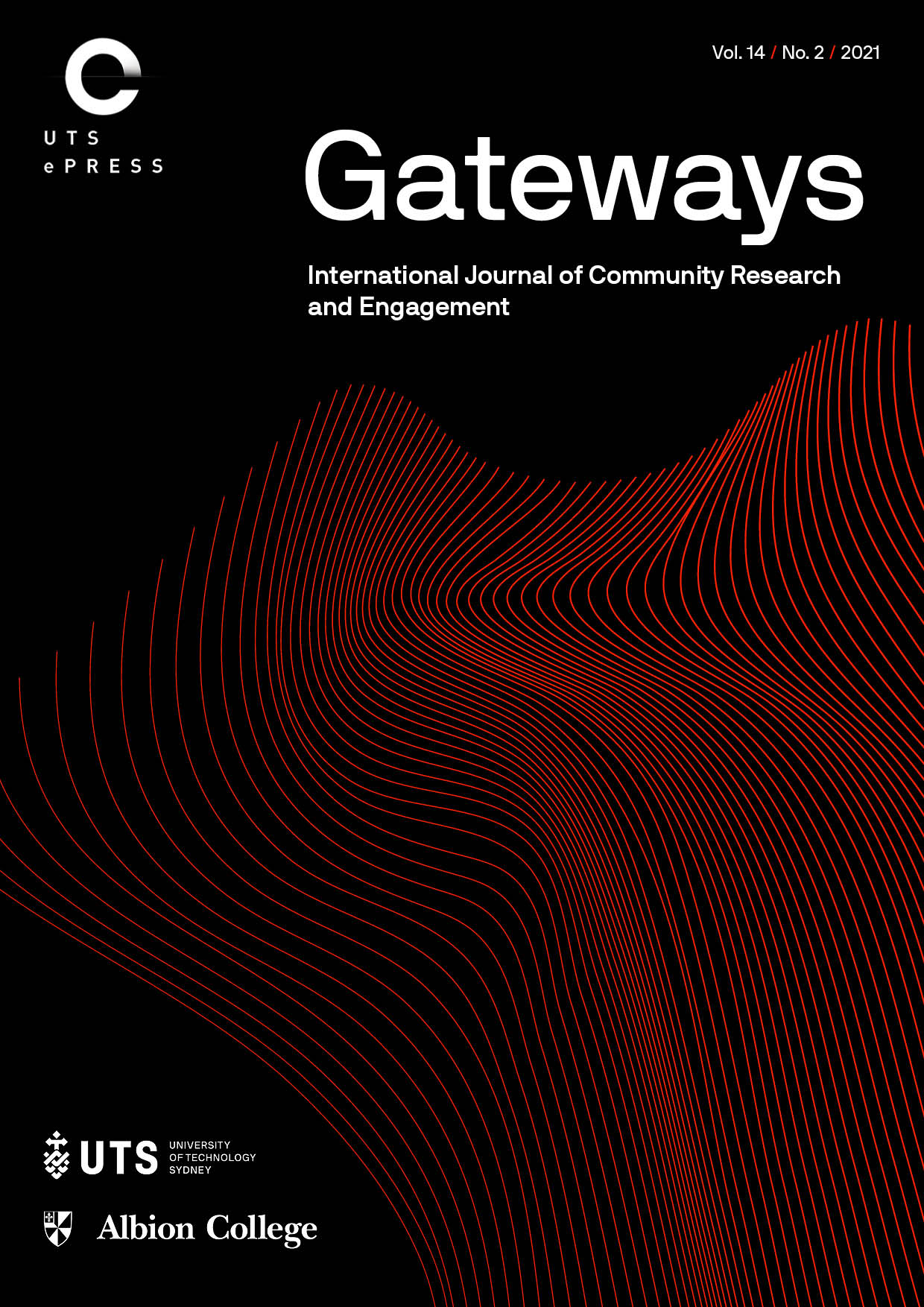Decolonial Dreamers and Dead Elephants
Main Article Content
Abstract
The 11 articles in this special themed issue examine the complexity of issues of power between individual researchers, between researchers and community organisations or higher education institutions, and between community organisations and institutions in relation to community-engaged research and scholarship. The articles uplift the pain and joy in community-engaged research, the harm and the benefits, the contradictions and tensions, and the true gifts and understanding gained in research with communities for the purpose of co-creating transformational change. We weave our own knowledge and experiences together with these individual articles as we seek ways to reimagine the future of community research and engagement. Specifically, we connect the near obliteration of African elephants and loss of Indigneous ways of knowing in Africa with the diverse communities, contexts and issues of power in community-engaged scholarship represented in this special volume. We, like the authors, hold a dream for the future of engaged scholarship that is more equitable, inclusive and morally just. We believe this dream is not only possible but achievable, as evidenced by the work of the authors in this volume.
We present an African indigenous knowledge system, Ubuntu, whose principles, values and tenets simultaneously promote the conservation of the community as a whole and the harmonious existence of the individual within the community. We posit that the adaptation and adoption of this knowledge system within the scholarship and practice of community-university partnerships and community research relationships may enable the development of a mutuality and reciprocity that levels power hierarchies within the personal, organisational and societal arenas of community-university partnerships. We demonstrate that many of the cases described by contributors to this special volume resonate with this knowledge system, which itself has survived colonisation and its concomitant epistemicide. Together, the authors help paint a pathway for those who want to become decolonial dreamers (la paperson 2017) daring to reimagine the nature of power in research as we collectively find ways to dream bigger in order to uncover new and exciting possibilities for this work we call community-engaged scholarship.
Article Details
Issue
Section
Authors who submit articles to this journal from 31st March 2014 for publication, agree to the following terms:
a) Authors retain copyright and grant the journal right of first publication with the work simultaneously licensed under a Creative Commons Attribution License that allows others to share and adapt the work with an acknowledgement of the work's authorship and initial publication in this journal.
b) Authors are able to enter into separate, additional contractual arrangements for the non-exclusive distribution of the journal's published version of the work (e.g., post it to an institutional repository or publish it in a book), with an acknowledgement of its initial publication in this journal.
c) Authors are permitted and encouraged to post their work online (e.g., in institutional repositories or on their website) prior to and during the submission process, as it can lead to productive exchanges, as well as earlier and greater citation of published work (See The Open Access Citation Advantage Service). Where authors include such a work in an institutional repository or on their website (ie. a copy of a work which has been published in a UTS ePRESS journal, or a pre-print or post-print version of that work), we request that they include a statement that acknowledges the UTS ePRESS publication including the name of the journal, the volume number and a web-link to the journal item.
d) Authors should be aware that the Creative Commons Attribution (CC-BY) License permits readers to share (copy and redistribute the work in any medium or format) and adapt (remix, transform, and build upon the work) for any purpose, even commercially, provided they also give appropriate credit to the work, provide a link to the license, and indicate if changes were made. They may do these things in any reasonable manner, but not in any way that suggests you or your publisher endorses their use.
For Volume 6 (2013) and before, the following copyright applied:
Articles published by UTSePress are protected by copyright which is retained by the authors who assert their moral rights. Authors control translation and reproduction rights to their works published by UTSePress. UTSePress publications are copyright and all rights are reserved worldwide. Downloads of specific portions of them are permitted for personal use only, not for commercial use or resale. Permissions to reprint or use any materials should be directed to UTSePress.
